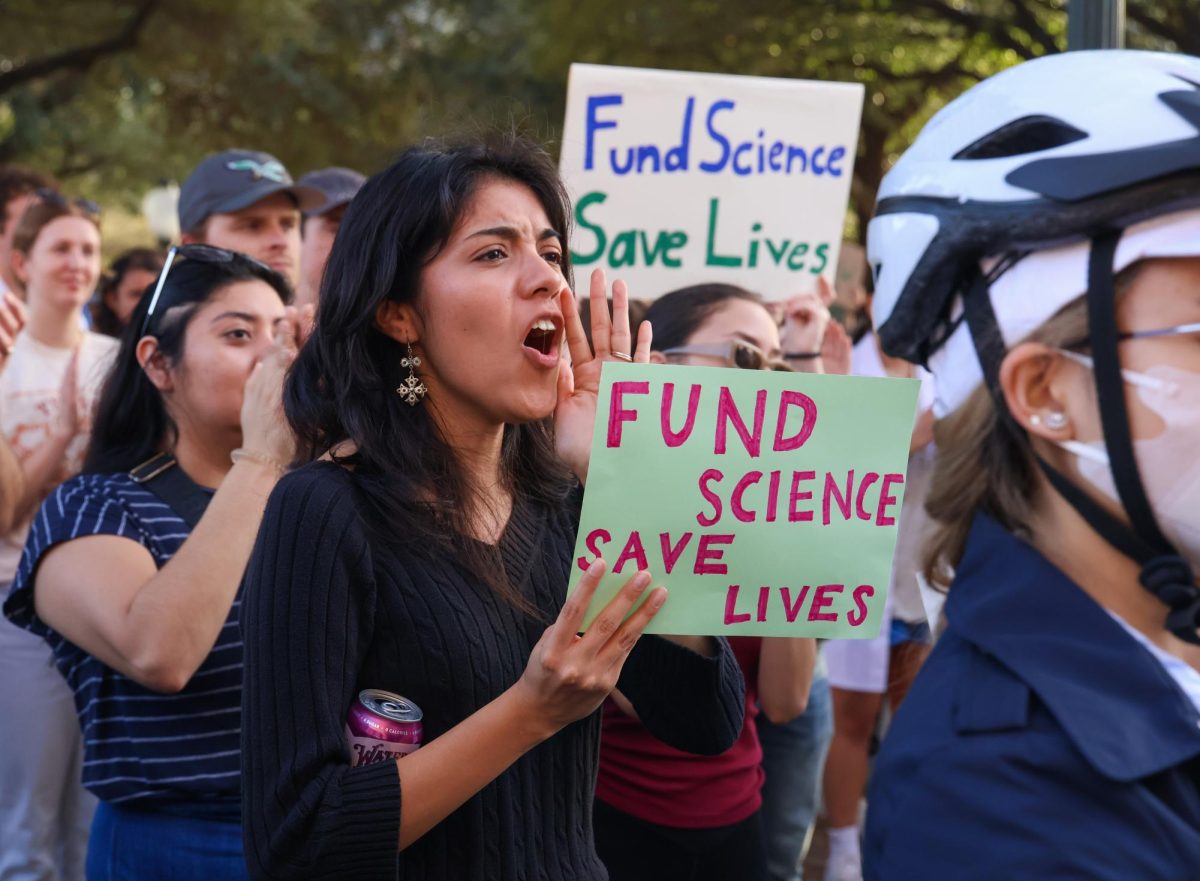Austin residents will decide Tuesday whether a $90 million bond proposal to fund road improvements and build sidewalks and bike lanes is an effective solution to the city’s transportation problems.
Get Austin Moving, a group that supports Proposition 1, held a final rally Monday at City Hall Plaza to lay out the reasons behind its support for the package and to thank supporters.
Representatives from the organization and other groups in favor of the proposition said the improvements are necessary for the city.
“It’s going to pass,” said Glenn Gadbois, a Get Austin Moving volunteer. “What I wish is that we get the people of Austin to vote for it, to get this trend of multimodal transportation going.”
George Cofer, executive director of the Hill Country Conservancy, said the proposition is a needed solution for the city’s current traffic congestion and that the improvements would connect East and West Austin, which have been separated by Interstate Highway 35 since its construction in the 1950s.
“It’s good for the businesses of Austin,” Cofer said. “It addresses water and air pollution. Proposition 1 begins to bring the city back together.”
Cofer said Austin voters do not support the arguments by those who oppose the proposition. He specifically cited Sensible Transportation Solutions’ efforts to defeat the proposition, including advertising efforts in the Austin American-Statesman and stirring up disaffection with the proposition among East Austin neighborhood groups that are largely Mexican-American.
Jim Skaggs has donated $10,000 to Sensible Transportation Solutions and is on the executive board of another advocacy group, the Coalition on Sensible Transportation. He said engineering firms and nonprofit groups support Proposition 1 for their own special interests.
“If you want to make beautiful streets by reducing their capacity to carry vehicles, then promote it as that,” Skaggs said. “Don’t promote it as a traffic congestion solution because it’s not that.”
Skaggs pointed to an incident in 2000, when the public seemed to be in favor of a citywide transit rail line.
“The entire city was for that rail,” Skaggs said. “We won that election.”
Despite supposed popular support for the rail, voters did not pass the proposal. Skaggs said he has similar hopes for Proposition 1.
In addition to Proposition 1, the Austin City Council will discuss spending an additional $1.1 million on bike lanes around the city on Thursday. City spokesman Matt Curtis said Mayor Lee Leffingwell supports Proposition 1, and city leaders will continue to discuss efforts to decrease traffic and environmental pollution in the city.
“Austin roughly doubles in size every 25 years since the 1870s, and there is no sign that we will stop growing,” Curtis said.
Investing in alternative transportation will help keep the city of Austin sustainable through growth, he said.
“Oftentimes bicycle commuters are very savvy in their route and can move more freely on their route to get where they need to go, so it certainly has the effect of reducing congestion,” Curtis said.
Collier Miers, an engineering junior and bicycle mechanic at University Cyclery, said bike lanes make bicyclists feel safer on the roads and cause less frustration among drivers.
“Any time there are more biking lanes, it encourages people to ride, which will create more of a demand for bikes — so it will help all biking businesses,” Miers said.














